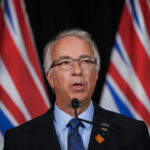Commentary
When I express my political opinions, not everyone accepts them immediately. I believe it’s because I am principled, others are stubborn, and some are labeled as ideologues. The insult of being called an ideologue is widespread but lacks substance. It doesn’t provide any insight into the actual content of a discussion or why opinions differ.
Labelling someone as an ideologue is often used to imply extremism or a disregard for facts. However, centrism itself is an ideology that seeks to find middle-ground solutions. It’s essential to understand that having an ideology doesn’t necessarily indicate a lack of rationality or morality.
In his work “The Structure of Scientific Revolutions,” Thomas Kuhn explores how scientific paradigms shape our understanding of the world. He challenges the idea that science progresses linearly and highlights the importance of bold assumptions and paradigm shifts in scientific breakthroughs.
Our perception of reality is influenced by our conceptual frameworks, and different paradigms can lead to legitimate disagreements. It’s crucial to recognize when a paradigm is no longer effective and when it’s time for a new revolution.
Expecting a single piece of contradictory evidence to upend an entire worldview is unrealistic. People’s beliefs are complex and deeply ingrained, and it takes more than a single fact to prompt a significant shift in thinking.
Debating differing interpretations of evidence is essential for intellectual growth. While having an ideology is not inherently negative, it’s vital to critically evaluate the ideologies we hold and understand why we hold them.
It takes thoughtful discussion and analysis to navigate the complex landscape of political and scientific ideologies. Embracing critical thinking and engaging in meaningful debate is key to advancing our understanding of the world.
Views expressed in this article are opinions of the author and do not necessarily reflect the views of The Epoch Times.
Please rewrite this sentence.
Source link






